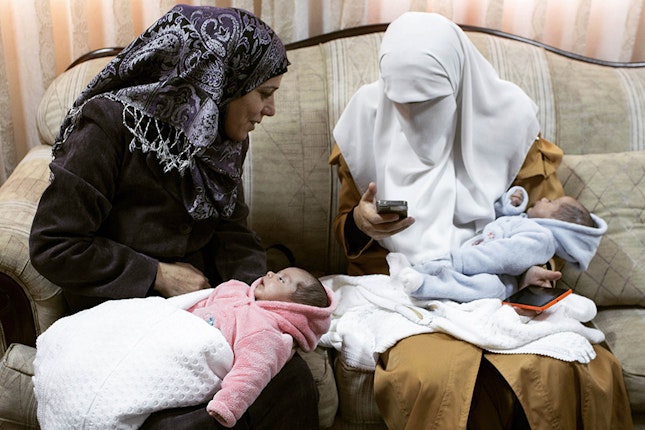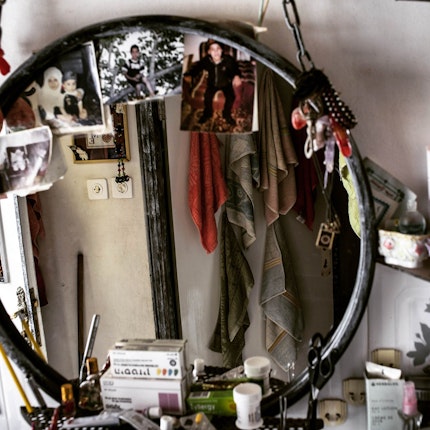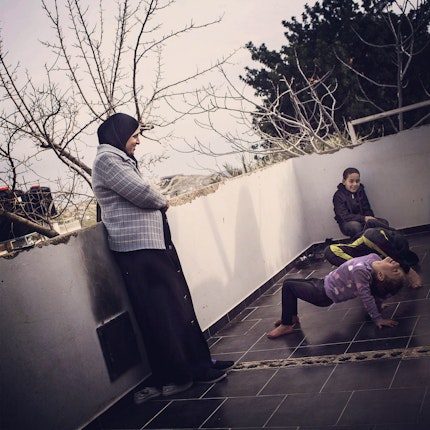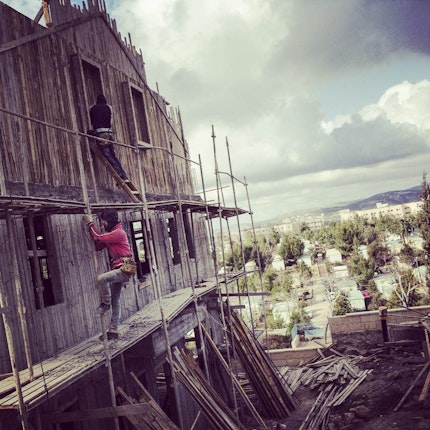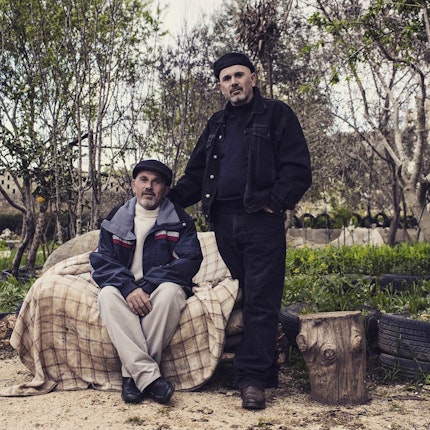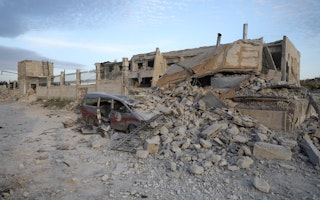Amid Occupation, Life Goes On for Palestinians
By Will Doig
Palestinians have found innovative and surprising ways to thrive during the occupation of the Palestinian territories. East Jerusalem–based photographer Tanya Habjouqa’s projects explore themes of identity, politics, occupation, and subcultures of the Levant. Recently, she spent a week posting to the Open Society Instagram account. Habjouqa spoke to us about her work.
We hear a lot about how hard life is for Palestinians in the occupied territories, but your photos reveal hardships we might not normally consider. Why did you choose to focus on the aspects of Palestinian life that you did?
Like most freelance photographers based in region, the majority of my assignments come from news agencies or NGOs. Occasionally the stars align and an assignment can lead to feature work that yields much more nuance than average hard news. For instance, a few of the images I provided during my week on Open Society’s Instagram were of people I met on recent assignment with National Public Radio, like the permaculture farmer.
Were you surprised to meet the permaculture farmer? What he’s doing is more associated with hippies in Northern California than Palestinians living in the West Bank.
To be honest—and I think I speak for most photographers, writers, and storytellers in this region—after a while nothing surprises you here. It is always inspiring and refreshing to see what people are attempting despite the hardships imposed on them. But out-of-the-box thinking is what it takes to get anything done here.
This place is so much more diverse than its stereotype. We have hippies. We have reggae musicians. We have high-tech computer nerds coming up with video games like Sperm Mania, which the CEO Khaled Abu Al Kheir says is a story that reflects their lives under occupation. It’s a direct reference to the smuggling of sperm by jailed Palestinians, some of whom are serving life sentences, to impregnate their wives on the outside.
The sperm smuggling stories are emblematic of a particular hardship most people would never think of. Can you describe how this process works?
This is one of the greatest examples of Palestinian ingenuity, overcoming obstacles, and literally continuing life. Dr. Salim Khaizarian at the Razan Infertility and IVF Clinic in the West Bank city of Nablus makes it happen. He sees his work helping to impregnate women—many whose husbands are serving life sentences—not as political, but as humanitarian and feminist. Many of these women are living in a situation where their husbands were arrested before they conceived or just after the birth of their first baby. And in some cases women have no role in their society if they are married without children.
Palestinian rights in prison are shockingly different from Israeli prisoner rights. Family visits are extremely difficult to achieve, and conjugal visits are strictly forbidden. So they have found this ingenious way, which is always changing—the wives have made a pact, along with the participating prisoners, to never reveal to the press how they do it, so as to ensure more people can achieve their goal before the Israeli prison system figures it out.
Many of your photos focus on how restricted the movements of some Palestinians are. How do you think being constantly hemmed in like this affects a community’s psyche?
Freedom of movement is a basic and foundational right, without which it’s hard to imagine modern life. The ability to reach work, schools, and health facilities, maintain family ties, do business, have leisure activities: Israel refuses to treat these as basic rights for Palestinians, and has implemented a parallel system of roads, rights, and laws—enforced by walls, barbed wire, roadblocks, and checkpoints—affecting Palestinians’ right to movement.
I think this affects Palestinians to their very core. There is a tension and even aggression on the edge of daily life. As someone who has lived for years in East Jerusalem, I can attest to that. Even if it is not you who is stopped at the checkpoint, you are witnessing it. Or you know your neighbor is at risk of having their house demolished. Or you meet a man who is weeping because he can no longer afford private education for his children, and what is provided by the state, because of an inequitable delegation of taxes, is subpar.
On the news we see only death and destruction, but your photos point to a kind of daily normalcy, even among occupation. How do the people you met view their future?
Generally, they are pessimistic about the future. That pessimism is masked with dark humor—I hear friends say they will “off themselves” if their children are having the same conversation about occupation and basic rights when they are adults.
Among the more privileged classes in Ramallah and even smaller groups in East Jerusalem, there are Palestinians pushing the envelope. They are accessing private education and going on to do great things. There are also young innovators and business entrepreneurs from all walks of life here. Artists. The more people I meet from this group, the more I question how long the status quo can continue. Ramallah and its boundaries will not be enough for this growing group.
On the negative side, people who live beside some of the most aggressive Israeli settlers in places like Hebron in the West Bank, live in poverty and on the cusp of great violence. Yet even with this, in extreme situations of poverty and violence, I still find a hospitality and elegance that amazes me. The status quo is untenable—that I know. But there are inspiring characters already on the ground, pushing and dreaming.
Until February 2017, Will Doig was a senior editor for the Open Society Foundations.
